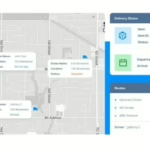Taiwo Oyedele, Chairman of the Presidential Committee on Fiscal Policy and Tax Reforms, has provided clarity on how Nigerians earning income through remote employment, social media influencing, or import businesses will be taxed under the upcoming fiscal reforms effective January 1, 2026.
During a tax awareness event hosted by the Redeemed Christian Church of God, City of David in Lagos, Oyedele outlined the new tax obligations for Nigerians engaged in these modern income streams.
In a widely shared video from the session, Oyedele emphasized that Nigerians working remotely for overseas companies must now declare their earnings and fulfill tax responsibilities within Nigeria.
“Remote workers are employees just like anyone else. Having an employer based abroad does not exempt you from paying taxes here. If your employer were local, taxes would be deducted at source. Since they are not, you must self-report your income,” he stated.
He cautioned that failure to disclose such income will lead to tracking through financial transactions and subsequent penalties.
“The government monitors financial flows. Undeclared income will be considered taxable, with added fines and interest for late payment,” Oyedele warned.
This taxation approach equally applies to online influencers generating revenue through digital platforms.
Regarding concerns from importers, Oyedele clarified that tax incentives will vary depending on the business sector, whether it involves trading, manufacturing, or other industries.
To address worries about overlapping taxes, he highlighted that the new legislation clearly delineates tax collection responsibilities among federal, state, and local authorities.
“The law specifies which government level collects which taxes. The National Revenue Service handles certain taxes, states collect others, and local governments manage theirs. Individuals should primarily focus on personal income tax,” he explained.
Oyedele also pointed out that the reforms will reduce the overall tax burden by cutting down the number of payable taxes and simplifying compliance procedures. He reiterated that while gifts and maintenance funds remain non-taxable, payments received for any goods or services-including unconventional jobs-are now subject to taxation.
Describing the reform package as “the most significant transformation in Nigeria’s fiscal history,” he noted it will ease tax compliance, minimize disputes over multiple taxation, and enhance government revenue streams.
Under the new regulations, individuals earning less than ₦800,000 annually will be exempt from personal income tax. Additionally, small businesses with annual turnovers up to ₦100 million and assets below ₦250 million will be exempt from company income tax, capital gains tax, and the newly introduced development levy.

















